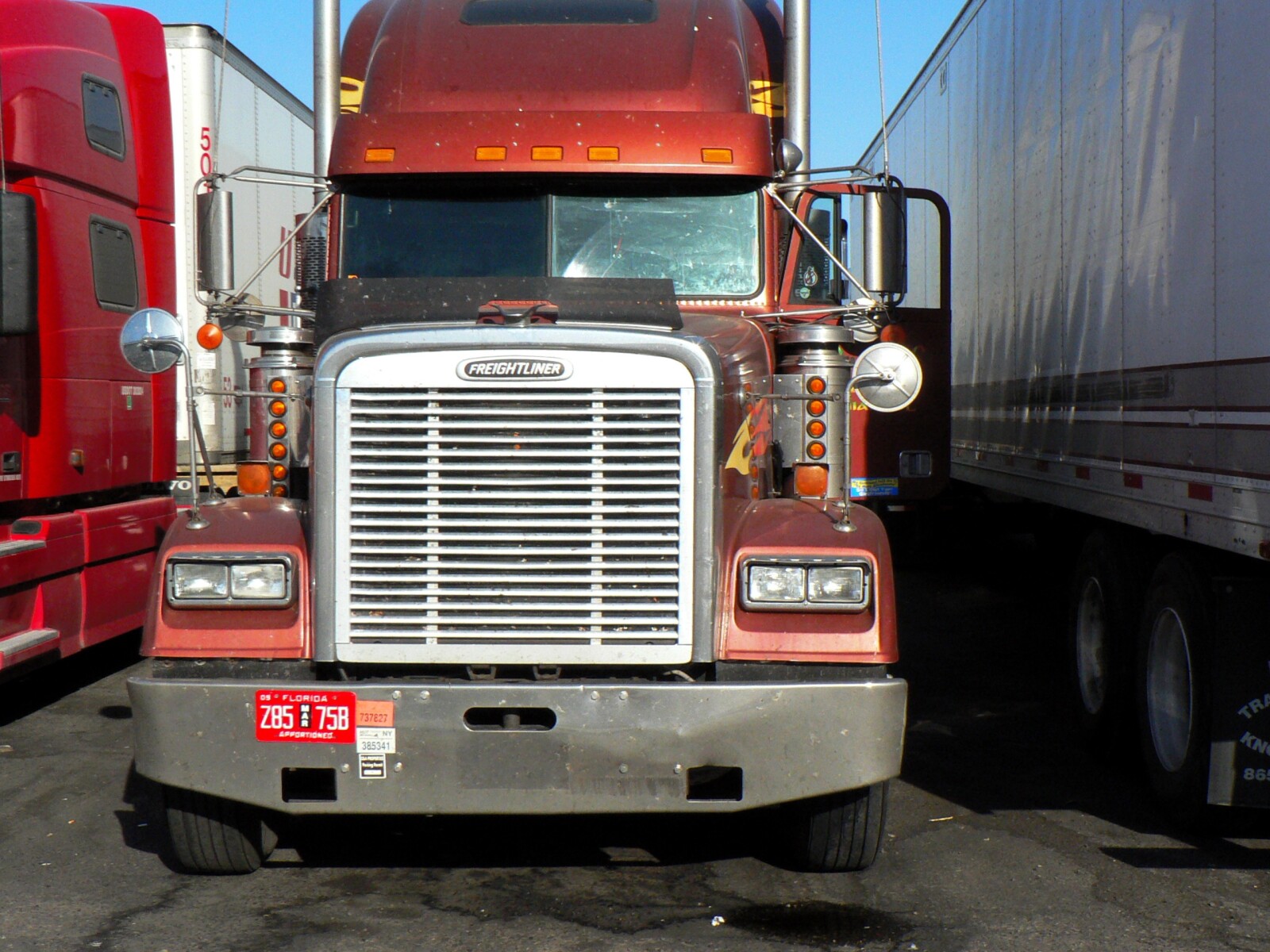Truck Accidents: Devastating Injuries and Legal Battles
Truck accidents can wreak havoc, causing serious injuries and complex legal battles. This article delves into the devastating aftermath of such incidents, the nuances of establishing liability, and the unique intricacies of North Carolina's contributory fault law. It also outlines various types of truck accidents, shedding light on the challenges each presents. With a compassionate understanding of the victims' plight, we aim to provide a comprehensive guide through the labyrinth of transport laws and regulations surrounding these unfortunate events.

Key Takeaways
- Truck accidents can result in serious injuries and extensive financial costs.
- Liability in truck accidents involves multiple parties, such as the trucking company and cargo loading company.
- Determining liability in a truck accident can be complex, considering factors like truck driver employment and maintenance responsibilities.
- North Carolina follows a pure contributory fault rule, where even 1% liability can prevent the plaintiff from recovering any damages.
The Harsh Reality of Truck Accidents
Regrettably, the harsh reality of truck accidents is that they often result in devastating injuries and complex legal battles, with victims potentially facing extensive financial burdens and life-altering consequences. Beyond the physical trauma, the emotional toll of truck accidents can be overwhelming, with victims grappling with the repercussions of incidents that have upended their lives. Understandably, seeking justice after a truck accident becomes a necessary step, not just for financial compensation but also for emotional closure. Yet, pursuing these legal battles necessitates a deep understanding of transport laws and regulations, adding another layer of complexity to an already challenging situation. This highlights the importance of seeking professional legal guidance to navigate the intricacies of the law and advocate for the victims' rights, easing their burdens and facilitating their journey towards recovery.
Comparing Truck Accidents With Car Crashes
In comparing truck accidents with car crashes, it is noteworthy that the former typically result in a 20% higher rate of fatalities and injuries due to the substantial weight and size differential. This underlines the severity of truck accidents, which also often involve complex legal battles due to the involvement of multiple parties. Unlike car crashes where liability usually lies with one or both drivers, truck accidents may implicate the trucking company, cargo loaders, and even vehicle manufacturers. As such, determining liability in truck accidents vs. car crashes requires an intricate understanding of transport laws and regulations. This complexity, coupled with the potential for devastating injuries, makes truck accidents a uniquely challenging area within personal injury law.
Understanding Liability in Truck Accidents
Understanding the concept of liability in truck accidents is crucial as it often involves multiple parties and can be complex due to the intricate regulations and laws governing the transport industry. Establishing liability entails meticulous examination of the accident scene, thorough understanding of transport laws, and insightful interpretation of available evidence. Determining fault may involve not only the truck driver but also the trucking company, vehicle manufacturers, or maintenance providers. Each of these parties could have contributed to the accident in differing ways, making the process of establishing liability a challenging task. For victims, navigating through such complexity while recovering from physical and emotional distress can be overwhelming. Therefore, seeking proficient legal counsel is instrumental in ensuring a fair outcome, focusing on the victim's holistic recovery.
The Intricacies of North Carolina’s Contributory Fault Law
North Carolina's contributory fault law, unlike the comparative negligence rule followed by many other states, prohibits plaintiffs from recovering damages if they bear even 1% of the fault, and this distinctive approach has its own unique complexities and challenges. The challenges of proving liability often require the support of expert witnesses, who can elucidate the specifics of transportation laws, regulations, and the mechanics of the accident. These professionals play a pivotal role in dissecting the event, identifying potential faults, and presenting irrefutable evidence. Such complexities often intensify the emotional distress for the victims, who not only have to grapple with their injuries but also the daunting legal battle. Hence, understanding and maneuvering through this law's intricacies is crucial for accident victims seeking justice in North Carolina.
An Overview of Common Truck Accidents
Amid the complexities of truck accident liability, it is essential to recognize the frequent types of truck accidents, such as tire blowouts and jackknifes, for a thorough understanding of associated risks and preventative measures. Tire blowouts may lead to serious accidents, often caused by inadequate tire maintenance or excessive loads. Jackknife accidents occur when a truck folds at a sharp angle, often due to sudden braking or slippery roads. Other common types of accidents include underride and wide-turn incidents. Prevention strategies involve regular vehicle maintenance, careful load balancing, and advanced driver training. Understanding these types is key to reducing their occurrence and mitigating severe outcomes. Our empathy lies with the victims who suffer from these incidents, and we strive to advocate for safer road transportation.
The Aftermath: Dealing With Injuries Post-Accident
Post-accident, victims often grapple with severe injuries and, in many cases, must also cope with the financial burden of ongoing treatment and rehabilitation. Understanding transport laws and regulations becomes essential in outlining the rehabilitation options for truck accident survivors. These options vary, ranging from physical therapies to specialized medical treatments, all aiming to alleviate the physical aftermath of the accident. However, the emotional trauma after a truck accident also demands attention. Psychological counselling, support groups, and cognitive-behavioral therapies serve as crucial coping mechanisms. These combined physical and emotional rehabilitation strategies aid in the victim's recovery journey, empowering them to reclaim their life post-accident. Legal guidance can further assist in navigating the complex path towards fair compensation.
The Financial Impact of Truck Accidents
While the physical and emotional toll of truck accidents is often devastating, the financial impact can be equally crippling, as victims may face extensive medical bills, loss of income, and other unforeseen costs. The financial consequences include immediate out-of-pocket expenses for emergency medical services, sustained hospital care, and necessary rehabilitative treatments. There are also long-term effects to consider: potential loss of earning capacity due to permanent disability, lifestyle modifications for coping with disabilities, and psychological counseling for post-traumatic stress. Furthermore, truck accidents can lead to a decrease in quality of life, adding to the financial strain. Navigating these financial hardships post-accident can be overwhelming; thus, victims should consult with a knowledgeable attorney to explore potential compensation avenues.
Legal Considerations Following a Truck Accident
Navigating the complex landscape of legal considerations following a truck accident often necessitates the involvement of a seasoned attorney, as this process entails establishing liability, understanding the implications of North Carolina's contributory fault law, and identifying potential compensation claims. In the midst of this, understanding the complexities of insurance coverage becomes paramount. Insurance policies for commercial vehicles often have intricate terms and conditions that can impact the amount of compensation. Concurrently, seeking medical treatment is an essential step to take post-accident, not just for immediate health, but also to document injuries for potential claims. An attorney can guide victims through these steps, ensuring they receive the medical care they need and are equipped to navigate insurance intricacies, contributing to a stronger claim for compensation.
The Role of Negligence in Truck Accidents
In relation to truck accidents, negligence plays a critical role, often being the pivotal point in determining liability, and can manifest in various forms such as driver fatigue, poor vehicle maintenance, or even reckless driving. The role of negligence in truck accidents is significant, as it can lead to devastating consequences for the victims involved. It is crucial to understand that securing the importance of evidence in proving negligence can greatly strengthen a victim's case. Evidence such as driver logs, maintenance records, and witness accounts can provide a comprehensive overview of the circumstances leading to the accident. Without this critical evidence, victims may face challenges in demonstrating the negligence that led to their injuries. It is, therefore, essential for victims to seek professional legal advice to navigate the complexities of these cases.
Pursuing Compensation: The Legal Battle
As victims strive to recover from the physical and emotional trauma of truck accidents, they often find themselves embroiled in a rigorous legal battle to pursue rightful compensation. This process can be daunting, necessitating strong legal representation to navigate the labyrinthine laws and regulations governing transport. In North Carolina, for example, the pure contributory fault rule can impact the ability to claim damages, making it crucial to clearly establish liability. Simultaneously, victims commonly face mounting medical bills and potential loss of income, further exacerbating their circumstances. Therefore, it is imperative to initiate the process of pursuing compensation promptly. Doing so not only alleviates financial strain but also serves as a vital step towards justice for the victims, signaling accountability in the transport industry.
Case Studies: Real Life Truck Accident Stories
Through the lens of real-life truck accident stories, we gain a deeper understanding of the profound personal and legal challenges victims face in the aftermath of such devastating incidents. These narratives underscore the long-term effects of truck accidents, including debilitating physical injuries, emotional trauma, and financial strain. The victims often face arduous legal battles, navigating complex laws to establish the driver's negligence or a company's violation of safety regulations. These stories emphasize the intricate interplay between personal injury law, transport laws, and regulations, and the victims' unyielding pursuit of justice. They also highlight the crucial role of skilled legal representation in seeking compensation and holding accountable parties responsible, providing a sobering reality check on the human toll of truck accidents.
Tips for Preventing Truck Accidents
Regular vehicle maintenance and adherence to speed limits are essential strategies for preventing truck accidents, but it is equally important to take regular rest breaks to avoid driver fatigue. Overlooking this simple safety measure can lead to catastrophic consequences. The FMCSA's Hours of Service regulations, a crucial transport law, mandates rest periods to prevent fatigue-related accidents. Despite being a challenge for truck drivers facing strict delivery deadlines, compliance is non-negotiable. Additionally, regular training on safety measures for truck drivers can ensure they are equipped to handle emergencies. The aftermath of truck accidents often involves severe injuries and distressing legal battles, making prevention paramount. It is a shared responsibility between trucking companies, drivers, and the entire transportation industry to prioritize safety.
Frequently Asked Questions
What Are the Common Causes of Truck Accidents?
Common causes of truck accidents often involve factors like inadequate truck maintenance and improper loading practices. Poorly maintained trucks can lead to mechanical failures, while incorrect loading can destabilize a truck, increasing the risk of accidents. Regulations govern these aspects, but non-compliance still occurs. These accidents often have devastating consequences, causing severe injuries or even fatalities. It's crucial for victims to understand their legal rights post-accident to seek fair compensation.
How Can a Truck Driver’s Lifestyle and Habits Contribute to the Likelihood of an Accident?
A truck driver's lifestyle and habits significantly affect the likelihood of an accident. Poor sleeping patterns can lead to fatigue, impairing their ability to drive safely. Substance abuse is another detrimental factor, as it can hinder judgment and slow reaction times. Both these factors violate transport laws and regulations, illustrating the importance of personal responsibility in maintaining road safety. Hence, a healthy lifestyle and adherence to laws are crucial in preventing truck accidents.
What Are Some Common Psychological Effects Experienced by Victims of Truck Accidents?
Victims of truck accidents often experience severe psychological effects. Post Traumatic Stress Disorder (PTSD) is common, characterized by flashbacks, nightmares, and severe anxiety. Emotional trauma can also manifest as depression, anxiety, and mood swings. These psychological impacts can affect all aspects of a victim's life, including personal relationships and work performance. It's critical for victims to seek professional mental health support to assist in their recovery process.
Can Weather Conditions Significantly Increase the Risk of a Truck Accident?
Yes, weather conditions can significantly increase the risk of a truck accident. Climate change impacts, such as sudden storms or icy roads, can make driving hazardous, particularly for large vehicles like trucks. Additionally, seasonal changes require different driving strategies. For instance, winter conditions demand slower speeds and increased stopping distances. Thus, it's crucial for truck drivers to follow seasonal driving tips to mitigate risks associated with adverse weather conditions.
How Do Safety Regulations and Standards Affect the Rate of Truck Accidents?
Safety regulations and standards significantly influence the rate of truck accidents. Strict enforcement of these standards, such as vehicle maintenance, driver rest periods, and load limitations, can greatly reduce accident occurrences. However, non-compliance or lax enforcement can result in devastating accidents. Therefore, understanding regulation impacts and standard enforcement is crucial in preventing accidents and ensuring the safety of all road users.
Conclusion
In conclusion, truck accidents present grave consequences, complex liability issues, and intricate legal battles. The severity of these incidents underscores the necessity for comprehensive understanding of transport laws and regulations, and empathetic handling of victims' plight. Through proactive measures and stringent adherence to safety norms, these devastating accidents can be potentially mitigated. In the wake of an accident, proficient legal counsel is crucial to navigate the complexities of liability and contributory fault laws, and ensure rightful compensation.

This post has been generated by AI and was not reviewed by editors. This is Not legal advice. Please consult with an attorney.




